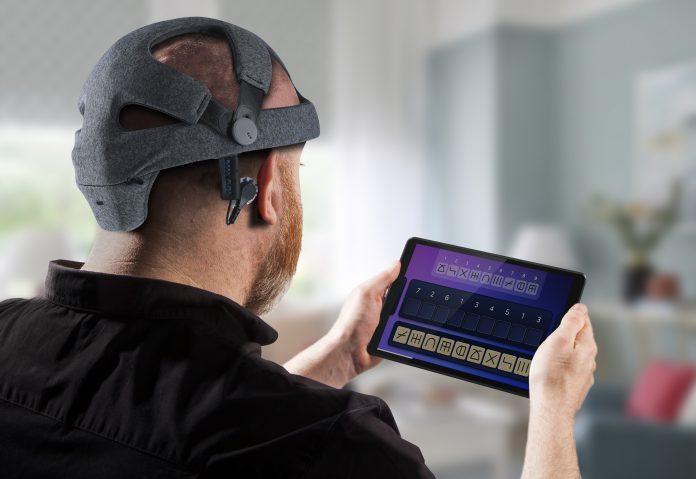Brian Murphy, CSO of UK digital health firm Cumulus Neuroscience, explores how AI tools could transform drug development in the difficult area of cognitive disorders
Cognitive disorders such as dementia are often poorly understood and lacking in effective treatments. This is partly because of the difficulties in measuring neurodegeneration, made worse by the fact that many neurodegenerative disorders start to develop long before symptoms show and underlying disease mechanisms are not well understood. Meanwhile, doctors assessing a patient will often only see a single snapshot of that person’s symptoms on what could be a good or bad day for them, further compounding the challenge of diagnosis.
This presents a number of challenges for early intervention and the development of drugs targeting these diseases. With all these factors combined, there has unfortunately been little breakthrough innovation in the space in decades, notwithstanding the recent approval of Biogen’s Aduhelm.
There has also therefore been a lower chance of financial return on the development of potential treatments – Alzheimer’s drug candidates, for example, have one of the highest failure rates of any disease area at 99.6%, further discouraging research and development.
But given the huge unmet need and size of the commercial opportunity, the pharma industry is still very active in this space, and keen to find treatments that can be transformative for patients at every stage of a cognitive disorder. To do this, we need to better understand these conditions at a patient level – not just in the clinic, but at scale and in real-world environments.
AI driven technologies for cognitive healthcare
Increasingly, researchers believe that the key to solving these issues lies in artificial intelligence (AI) driven technologies. With AI, it is becoming much easier to measure the subtle but highly relevant cognitive and behavioural patterns that signal early neurodegeneration.
At Cumulus Neuroscience we’ve worked with eight of the world’s largest pharma firms to select the five behavioural and physiological domains they see as most critical for cognitive research; we’ve then brought together advanced tools for each of these domains into an integrated physiological and digital biomarker platform, providing a comprehensive view of patients’ cognitive health.
With a combination of AI algorithms and sophisticated assessment tools, our integrated platform can measure cognitive health much more precisely than ever before, in a real-world environment, improving the speed and success of clinical trials for new cognitive therapies.
Take speech recognition as an example. Advanced technologies, such as the speech analytics tools integrated into our platform, can now assess subtle changes in word choice, grammar and the acoustic properties of speech that can indicate neurodegeneration. For instance, a patient who uses more pronouns, fewer nouns and more high-frequency words in their speech may be showing signs of semantic impairment, with emptier, vaguer, and more non-specific speech. Some of these changes are incredibly difficult for humans to distinguish – such as acoustic abnormalities like slightly longer pauses between words and sentences – and this is where AI can play an important role.
Brains are also highly adaptable and can mask early damage by finding workarounds, meaning that a person’s memory capacity or other cognitive performance may appear unaffected. That is why it is important to look at underlying brain activity also. Cumulus have a unique capability to record electroencephalography (EEG or “brainwaves”) in patients’ homes, while they do gamified tasks in decision making, learning and emotional intelligence. This rich longitudinal multimodal sampling of patient performance and brain activity creates large complex datasets that are perfectly suited for advanced AI techniques.
All of the assessment technologies in our platform have been carefully designed for low patient burden and frequent, repeated use, with remote monitoring and integration with standard tablet devices.
Using a technology platform such as ours, it is now more possible than ever for pharma companies to conduct broad cognitive assessment on a frequent basis with real-world data, across multiple disorders, populations, symptoms and mechanisms of action. Just as big genomic databases have been game-changing in understanding genetic disorders, frequent, objective datasets of how patients’ cognitive conditions change will be invaluable for developing new dementia therapies going forward.
Having a global impact
To truly have a significant global impact on cognitive diseases, we need tools that work for everyone, everywhere – and that means focusing on affordability, scalability, and Big Data analysis powered by AI.
Combining this with a cloud platform, automated methods, easy usability and cheap, scalable, manufacturable hardware means we are uniquely positioned to capture the data needed to answer the most valuable questions in cognitive research. Already Cumulus’ platform has been extensively field-tested by hundreds of users over thousands of hours in patient and control populations.
The slew of well-publicised clinical trial failures in cognitive disorders such as dementia can often make it seem like there’s little hope for future treatments – but some of the brightest minds in the world are focusing their efforts on drug discovery in this area, which remains one of the biggest opportunities in terms of unmet need.
Now, thanks to increasing digital transformation, we can achieve better and more timely assessment of drug candidates earlier in development. Cumulus’ ultimate aim is no less than to provide an industry-wide standard registrational outcome measure for cognitive disorders; with this in place, we can greatly improve the robustness of clinical trials and hopefully help to deliver important new therapies to patients suffering from these life-altering conditions.











